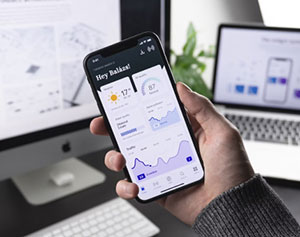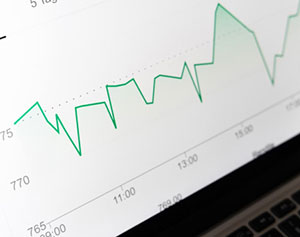News
Spring Cleaning: 6 Ways Accurate Contact Data Allows New Opportunities to Bloom

Business 2 Community | Date: 2021-04-06
Spring is here, and it’s time to clear out those digital dust bunnies and get your data house in order. Most of us agree that having fresh, accurate data is essential to fuel effective digital marketing—but it’s easier said than done. Maintaining a clean and accurate database is challenging. To begin with, many companies source data from multiple vendors with varying ranges of quality. On top of that, B2B data is regularly decaying as people change companies, get promoted, move locations and purchase new devices.
Just as you may clean your baseboards or clear out the kitchen pantry, it’s also necessary to clean your database. As a longtime data provider, I’ve learned the ins and outs of what it takes to keep B2B data accurate. From my experience, here’s what you should know to update your B2B database—and keep it clean.
- Build with Accurate Foundational Data
These days, even large businesses with extensive databases are turning to a third-party provider for prospect data, especially because oftentimes the most essential contact data—an email address—can be one of the hardest pieces to fill. A third-party provider can fill in missing details such as firmographic data and provide the range that a business needs for acquisition campaigns. But not all third-party data is accurate. That’s why due diligence is important. Digital marketers need a solid foundation of accurate contact data to build their campaigns upon, especially when it comes to omni-channel marketing, which focuses on delivering a consistent, personalized experience for shoppers across all channels and devices. The guiding principle of omni-channel marketing is that it’s shopper-based, not channel-based. Therefore, having fresh and accurate contact data is critical for providing the optimal experience. My advice is to look for a provider with a track record for high-quality data — one that guarantees their email validity, for example, so you know your messages are reaching the right contact. For reference, at OMI we guarantee 95% email validity for 30 days.
- Know the Risk of Bad Data
From poor campaign results to wasting your budget, bad data has many negative outcomes. Additionally, inaccurate data can damage your email sender reputation, putting you at risk with email service providers who could blacklist your company, preventing you from emailing at all—even when you update the records with new, clean data.
- Understand the Limits of Self-Service
When it comes to updating your data, it never hurts to ask the customer or prospect directly. Some will gladly update their account information when they’ve changed emails, companies or positions—if you make it easy with intuitive self-service options. Prompt customers to keep their account information up to date by adding a link in regular communications or in a customer portal. This is a good start to keeping your database clean, but not suitable for most contacts who don’t want the hassle of correcting their information. And it doesn’t address acquisition contacts who have not yet engaged with your company.
- Time & Typos: Manually Updating Records
While no one wants to admit it, when marketers come across invalid contact data, instead of taking the time to make corrections or purge the contact, they often leave the data untouched. The inaccurate record continues to be used, wasting valuable time and money. But even if marketers and sales teams corrected every mistake they came across, manually updating these records is tedious, time-intensive, and not practical at scale. Plus, it runs the risk of introducing new mistakes into the data.
- Automate with a Data Cleansing Service
As digital marketing continues to evolve and change, many businesses are realizing they need to turn to a data cleansing service provider to purge invalid or out-of-date data without eliminating high-value prospect records or the risk of manual typos. Data cleansing involves removing, correcting and replacing inaccurate data. It is a detailed process that enables increased deliverability and engagement. It includes reviewing and correcting addresses, company and contact names, along with email verification services. Additionally, some providers can enhance and append valid records to strengthen the accuracy of the full record and the contacts associated with it.
Data cleansing providers will often batch clean your data using a staged cleaning process that checks the data against a number of known factors. Some of the steps and verifications may include:
– CASS certification to append missing address elements to clean and complete the postal addresses
– Correct existing and append missing company names
– Correct and standardize the contact names
– Contact to company verification (records are flagged when the contact may no longer be at the company)
– Email deliverability testing (indicate if an email address is undeliverable and, when possible, replacing it with a deliverable email associated with that contact)
– Identify spam trap email addresses and clean the file
- Sustain Accuracy with Regular Maintenance
Since B2B data is always changing, keeping your data accurate must be an ongoing process. Some providers will offer monthly email maintenance to connect data and re-verify specified email addresses as needed, such as before a new campaign. When selecting a data cleansing provider, look for a service that includes a maintenance program to continuously optimize data accuracy and validity.
Accurate B2B contact data not only allows marketers to deliver messages to the intended recipients, it also opens the doors for new opportunities to bloom. Marketers can vet additional data, drill down further, segment their database into relevant audiences, and create personalized campaigns that target prospects across channels. Accurate contact data is essential for successful digital marketing and investing the time and resources into quality data—and keeping it clean—pays off.
DOWNLOAD YOUR FREE ebook
At OMI, we believe good things happen when you share your knowledge. That's why we're proud to educate marketers at every level - in every size and type of organization - about the basics of email marketing and the contact data that powers it.
-
The Executive's 15-Minute Guide to Building a Successful Email Marketing Database
-
A 15-Minute Guide to Fortune 2,000 Businesses and Executives
-
Five Best Practices for Using Email Marketing to Target SMBs



